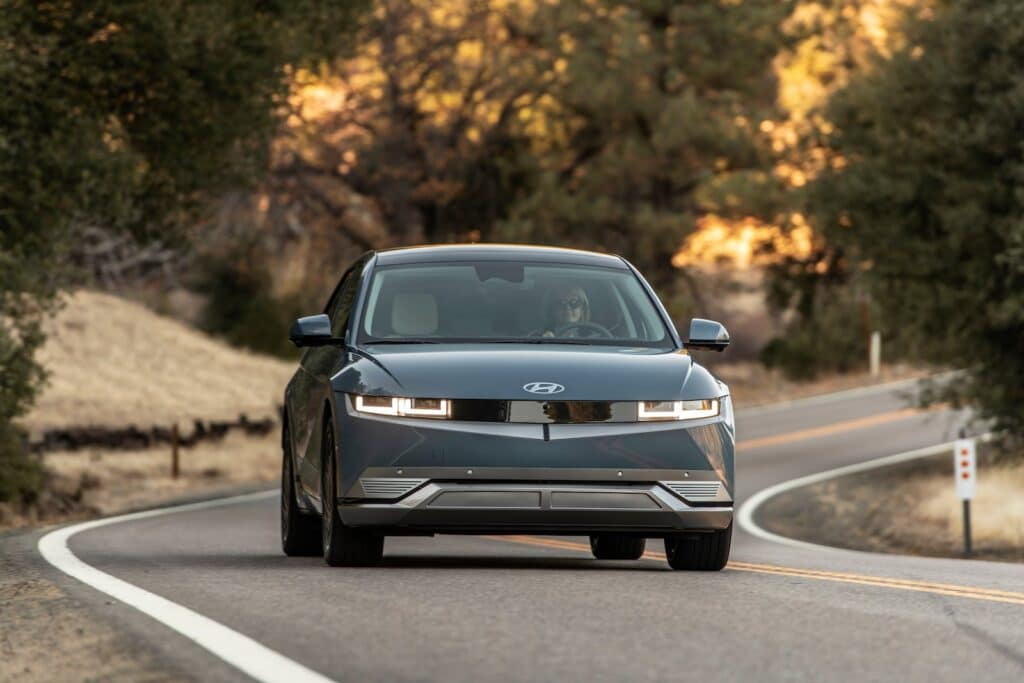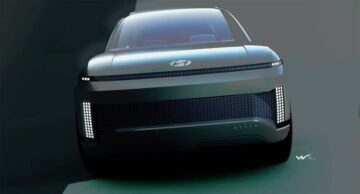The National Highway Transportation Safety Administration has opened a preliminary evaluation into the 2022 Hyundai Ioniq 5 EV for sudden loss of power.

A total of 30 consumer complaints have been registered with the agency stating that drivers heard a loud pop, followed by a dashboard error warning and immediate loss of power. In some cases, the power loss was partial or delayed slightly, and in others the vehicle immediately lost all power.
The investigation currently covers 39,559 Ioniq 5 EVs sold from the 2022 model year.
Frightening failures
Owner reports are particularly concerning, because the problem happens without warning and effects are immediate. One owner stated, “While driving vehicle, car had sudden and rapid loss of power that resulted in significant decrease in speed. Vehicle was nearly in a rear-end collision due to sudden drop in speed.”
Another owner reported, “I was driving my Hyundai Ioniq 5 SEL northbound on CA Highway 135 when I heard a loud pop coming from my car. Within a few seconds my car lost speed rapidly, from 55 mph to 25 then a second later 22 mph … A message appeared on the right side of the dash board in an orange circle ‘check vehicle system’ with a small upside down triangle with letters EV also inside this circle and a ‘small orange battery’ picture showed on the left. I drove the car onto the shoulder of the road with my hazard lights blinking … Immediately upon entering the parking lot, my car stopped dead, before I had a chance to pull into a parking space.”
Additional reports are similar, stating that the vehicle will lose power suddenly at freeway speeds. For its part, Hyundai has stated that the company is cooperating with the investigation and has identified the defect responsible. A software update is planned for July and the company will replace all failed modules. The retail price of a new ICCU module is list at about $8,700.
What is the ICCU?
NHTSA’s Office of Defects Investigation (ODI) “learned from Hyundai that the failure is related to the ICCU (Integrated Charging Control Unit) that is responsible for powering both the HV (Hybrid Vehicle) battery and the LV (low voltage) 12V battery. Preliminary review indicates over-current within the ICCU (Integrated Charging Control Unit) can damage transistors (FET) in the LDC (DC-to-DC converter) resulting in the inability to recharge the 12V battery.”
The Integrated Charging Control Unit is a device that allows bi-directional current flow from the vehicle’s high-voltage EV battery to other applications, such as charging the 12-Volt battery in the car, or to power 120-Volt appliances outside the car, or to allow an EV to charge another EV. The ICCU is built into all Hyundai Group vehicles created on the automaker’s new E-GMP platform.
In addition to the Ioniq 5, the Kia EV6 is also built on the E-GMP platform and some owners have reported ICCU failures in that vehicle as well. The reported behavior is identical to the Ioniq 5 failures, but no NHTSA case has been opened on the Kia product at this time.
In addition to the Hyundai Ioniq 5 and Kia EV6, the E-GMP platform with its ICCU has been used to create the Hyundai Ioniq 6 and the Genesis GV60. Planned future products on the platform include the Kia EV4, EV5, and EV9, and the 2024 Hundai Ioniq 7 and 2024 Genesis GV90.
- SEO Powered Content & PR Distribution. Get Amplified Today.
- EVM Finance. Unified Interface for Decentralized Finance. Access Here.
- Quantum Media Group. IR/PR Amplified. Access Here.
- PlatoAiStream. Web3 Data Intelligence. Knowledge Amplified. Access Here.
- Source: https://www.thedetroitbureau.com/2023/06/nhtsa-investigates-2022-hyundai-ioniq-5-power-loss/
- :has
- :is
- 2022
- 2024
- 22
- 25
- 30
- 39
- 7
- a
- About
- addition
- administration
- agency
- All
- allow
- allows
- also
- an
- and
- announced
- Another
- appeared
- appliances
- applications
- ARE
- AS
- At
- battery
- because
- been
- before
- Blue
- board
- both
- built
- Bureau
- but
- by
- CA
- CAN
- car
- case
- cases
- Chance
- charge
- charging
- Circle
- coming
- company
- complaints
- concerning
- consumer
- control
- cooperating
- covers
- create
- created
- Current
- Currently
- damage
- Dash
- dashboard
- dead
- decrease
- Delayed
- device
- down
- drivers
- driving
- Drop
- due
- effects
- entering
- error
- EV
- evaluation
- Failed
- Failure
- FET
- few
- flow
- followed
- For
- freeway
- from
- future
- Genesis
- Group
- had
- happens
- Have
- heard
- Highway
- HTTPS
- Hybrid
- Hyundai
- i
- identical
- identified
- immediate
- immediately
- in
- inability
- include
- indicates
- inside
- integrated
- into
- investigates
- investigation
- issues
- IT
- ITS
- jpg
- July
- Kia
- later
- left
- List
- lose
- loss
- lost
- Lot
- Low
- max-width
- message
- model
- module
- Modules
- my
- National
- nearly
- New
- no
- nose
- of
- Office
- officials
- on
- ONE
- opened
- opening
- or
- Orange
- Other
- Others
- outside
- owner
- owners
- parking
- part
- particularly
- picture
- planned
- platform
- plato
- Plato Data Intelligence
- PlatoData
- pop
- power
- Powering
- price
- Problem
- Product
- Products
- rapid
- rapidly
- Recharge
- registered
- related
- replace
- Reported
- Reports
- responsible
- resulted
- resulting
- retail
- review
- right
- road
- Safety
- Second
- seconds
- showed
- side
- significant
- similar
- small
- Software
- software update
- sold
- some
- Space
- speed
- speeds
- stated
- stopped
- such
- sudden
- that
- The
- then
- this
- time
- to
- Total
- transportation
- unit
- Update
- upon
- Upside
- used
- vehicle
- Vehicles
- Voltage
- warning
- was
- WELL
- when
- will
- with
- within
- without
- year
- zephyrnet











